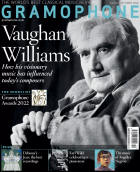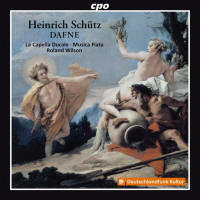Texte paru dans: / Appeared in: |
|
|
Outil de traduction |
|
|
Alas, the music of Schütz’s Dafne is entirely lost. Whether or not the ‘pastoral tragi-comedy’ was really the first German opera, its performance in April 1627 celebrated the marriage of the Elector of Saxony’s daughter to the Landgrave of Hesse-Darmstadt. Martin Opitz’s published libretto paraphrased and remodelled Ottavio Rinuccini’s favola in musica, which had been set to music by Peri (Florence, 1598) and Gagliano (Mantua, 1608). In a prologue set in the Elysian Fields, Ovid proclaims the cruelty and intensity of love. The ensuing drama presents Venus and Cupid (described as the ‘little archer’, a pun on ‘Schütze’) punishing the boastful Apollo so that he becomes enamoured with the uninterested nymph Daphne, who escapes the god’s rapacious clutches by metamorphosing into a laurel. Roland Wilson compares his speculative reconstruction to playing advanced sudokus. He proposes that a dozen extant Schütz works function perfectly as parodies for ‘about half of the total’ of the set pieces, and adapts Gagliano’s music for the wordier German recitatives. An intrada by Samuel Scheidt is played with impeccable chiaroscuro by the instrumentalists of Musica Fiata. Ovid’s prologue is sung with sweet intimacy by Georg Poplutz. Battle music to convey Apollo defeating the dragon Python, taken from the large-scale polychoral motet Es erhub sich ein Streit im Himmel, segues cleverly into Schütz’s German contrafactum of Monteverdi’s canzonetta ‘Chiome d’oro’ (sung blithely by Tobias Hunger).
The fateful encounter between Apollo and Daphne uses
sinfonias from Symphoniae sacrae (Venice, 1629), and the same source is
the basis for the god’s rapturous reaction to the nymph running away; the
ensuing chorus of shepherds is one of several parodies of duets on poems by
Opitz. Wilson uses clay pipes to create nightingale sound effects in music
adjusted from O der grosser Wundertaten (composed in 1634 for a royal
wedding in Copenhagen). As Cupid and Venus, Magdalena Podkoscielna and Magdalene
Harer combine with cheeky lightness in chirpy songs from the Dresden court
lutenist Johann Nauwach’s Teutscher Villanellen (pubished in 1627, and
dedicated to the newlyweds). |
|




